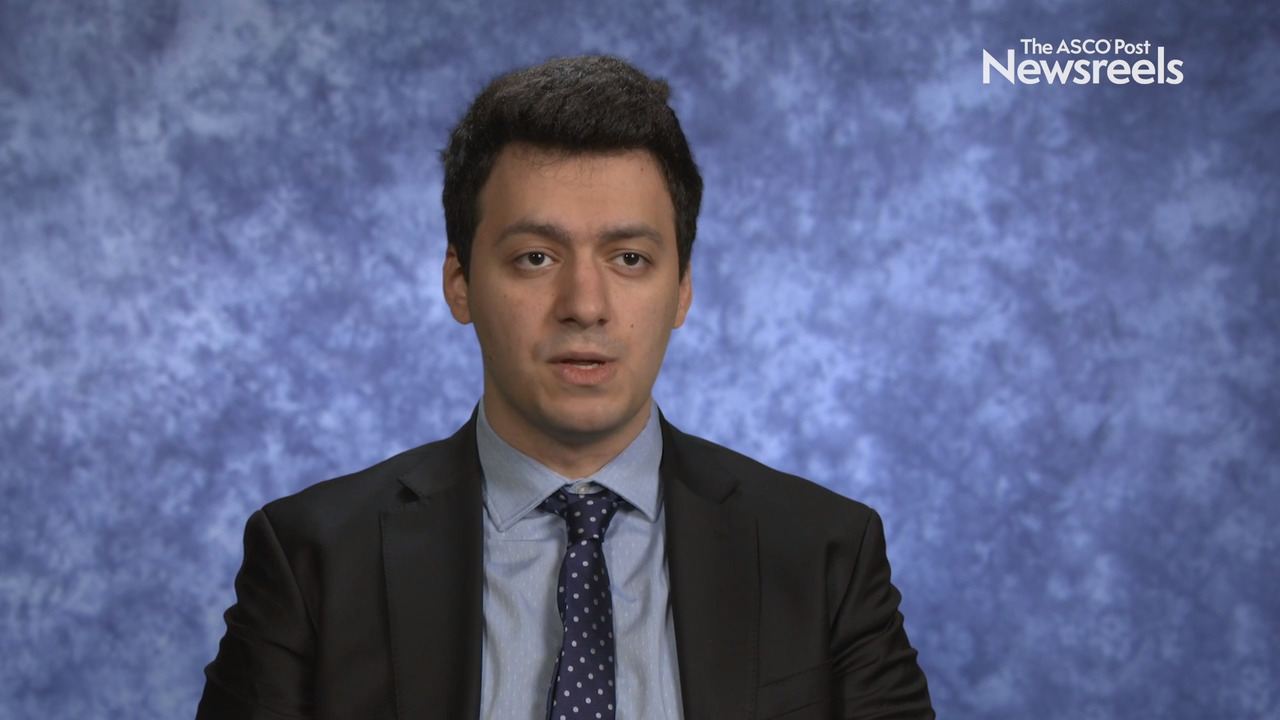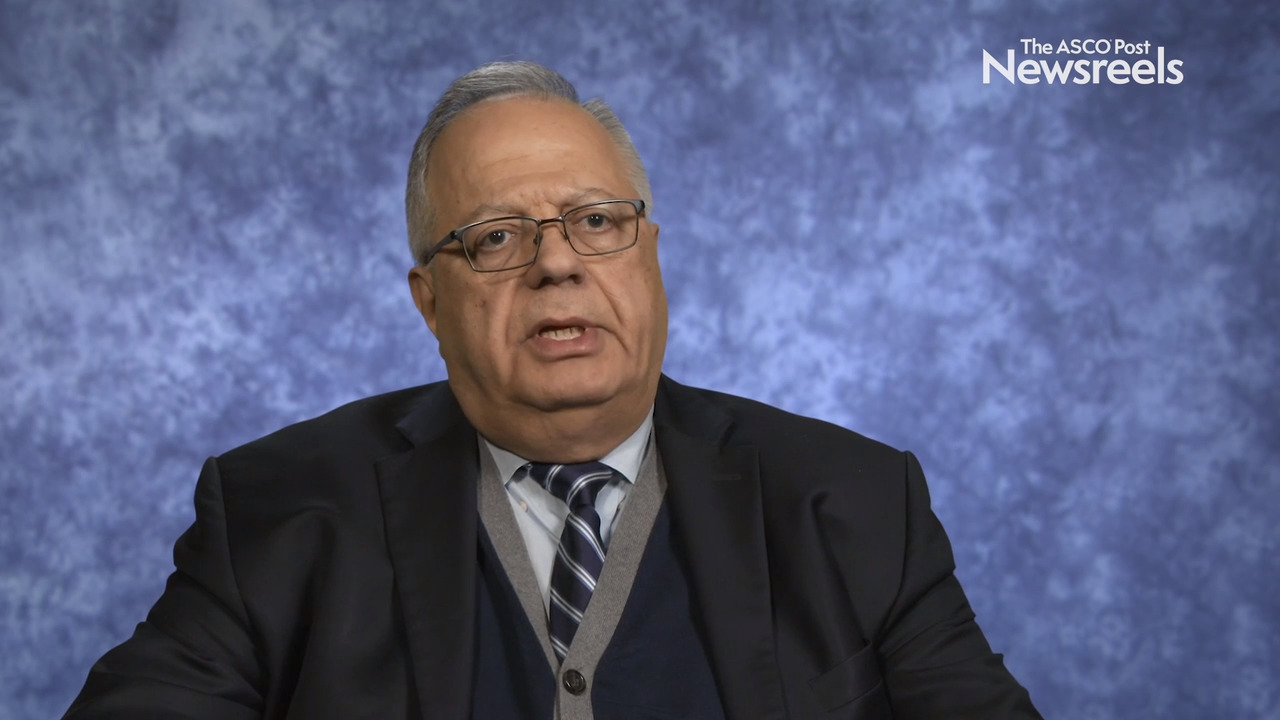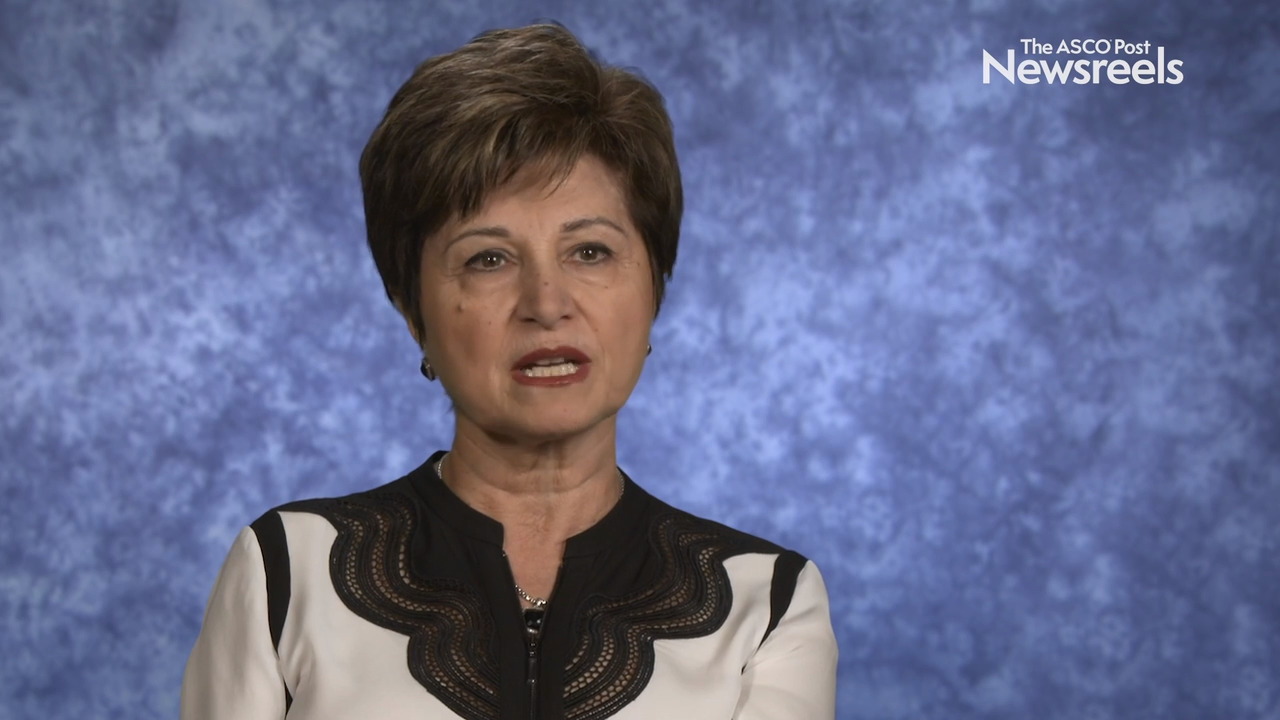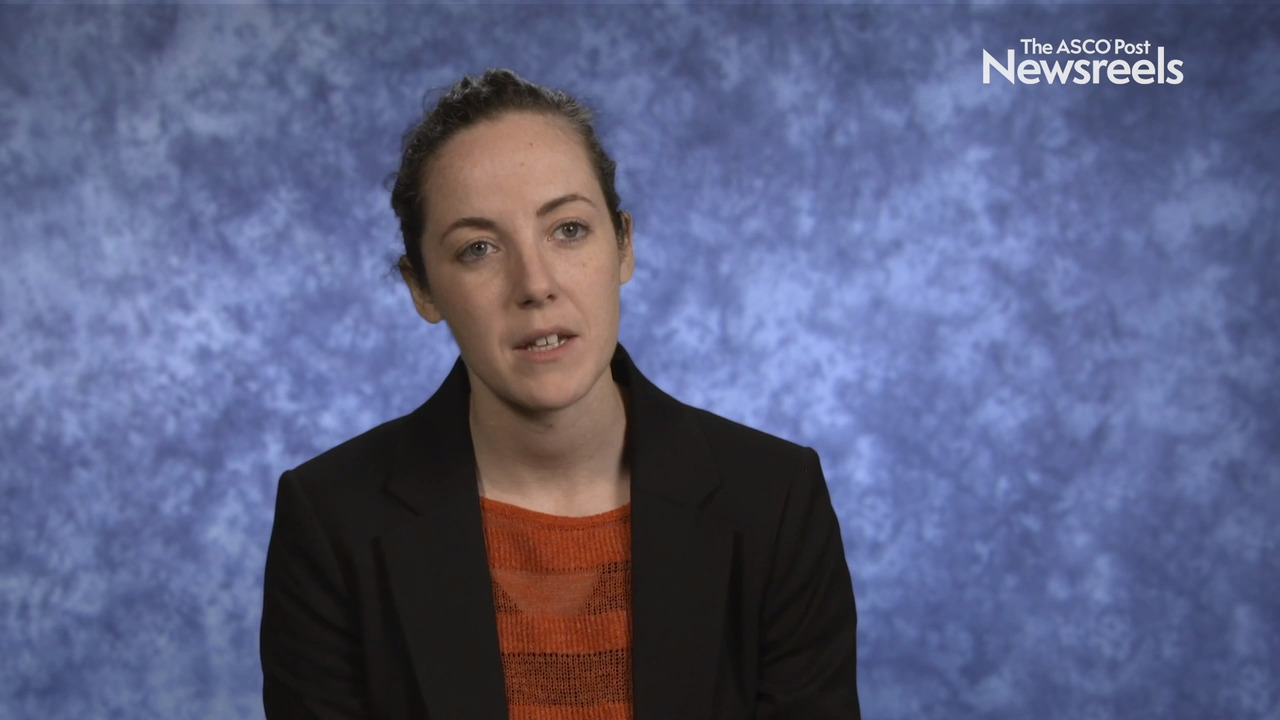Karim Fizazi, MD, PhD, on Prostate Cancer: Pain and Quality of Life in Patients Receiving Cabazitaxel vs Abiraterone or Enzalutamide
2020 Genitourinary Cancers Symposium
Karim Fizazi, MD, PhD, of the Institut Gustave Roussy, discusses results from the CARD study, which showed that cabazitaxel improved pain, time to pain progression, and symptomatic skeletal events, as well as quality of life in patients with metastatic castration-resistant prostate cancer. The findings support the use of this agent as a standard of care (Abstract 16).
The ASCO Post Staff
Thomas Powles, MD, PhD, of Queen Mary University of London, summarizes two papers on metastatic renal cell carcinoma for which he was the discussant: nivolumab in combination with stereotactic body radiotherapy in pretreated patients, and combining dual immune checkpoint inhibition with stereotactic radiation (Abstracts 613 & 614).
The ASCO Post Staff
Ziad Bakouny, MD, of Dana-Farber Cancer Institute, discusses the controversial and ill-defined role of cytoreductive nephrectomy in treating patients with metastatic renal cell carcinoma who have received targeted therapies or immune checkpoint inhibitors (Abstract 608).
The ASCO Post Staff
Nizar M. Tannir, MD, of The University of Texas MD Anderson Cancer Center, discusses overall survival and an independent review of response in CheckMate 214 with 42-month follow-up, using first-line nivolumab plus ipilimumab vs sunitinib in patients with advanced renal cell carcinoma (Abstract 609).
The ASCO Post Staff
Maha Hussain, MD, of the Robert H. Lurie Comprehensive Cancer Center of Northwestern University, discusses the first phase III clinical trial to demonstrate the feasibility of tissue-based genomic testing to preselect men with metastatic castration-resistant prostate cancer for targeted treatment and the superiority of the PARP inhibitor olaparib compared to enzalutamide or abiraterone (Abstract 195).
The ASCO Post Staff
Hannah L. Rush, MBChB, of the Clinical Trials Unit at University College London, discusses an analysis of the STAMPEDE trial, which showed that patients treated with abiraterone had higher scores in global quality of life as well as in the physical, social, and role function domains and lower scores for pain and fatigue over the first 2 years than those receiving docetaxel (Abstract 14).





